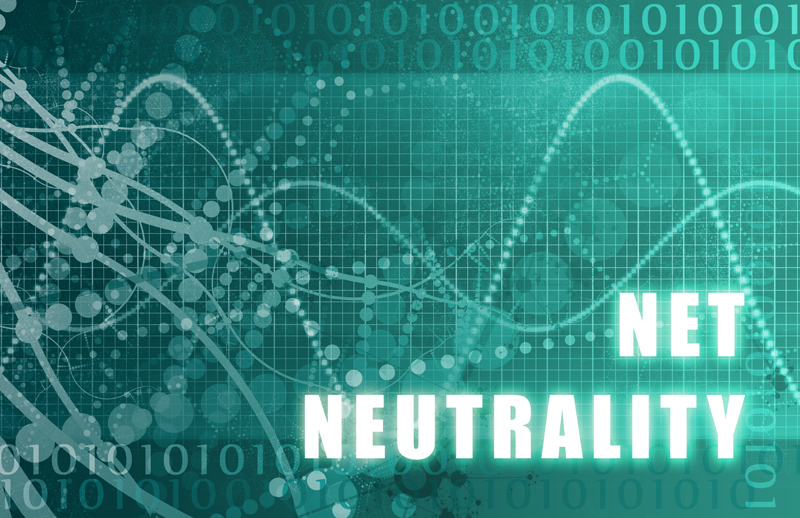
The Fight for Net Neutrality and Implications for Australia
Although Australia hasn’t been paying too much attention to it, the ongoing fight for net neutrality in the U.S. has been one of the burning issues in the internet world since January this year.
It all started when a federal appeals court in Washington struck down the Federal Communication Commission’s regulations concerning broadband access, thus posing some new challenges for popular services such as Netflix, Google and Skype.
The newly proposed regulations are in direct contrast to the idea of ‘net neutrality,’ the loss of which could severely affect development of tech startups. Many have suggested that this would repress or even put an end to innovation on the Internet, which logically caused reactions by major net-neutrality advocates.
On the other hand, the opponents of net neutrality argue that Internet Service Providers (ISPs) should be able to design their product offering in line with the investments required for managing broadband networks.
In Australia and New Zealand, the net neutrality debate is mostly seen as a commercial issue for the U.S. ISPs, especially because the region has no particular regulations on net neutrality. It is common for Australian ISPs to block certain content for users based on their usage allowance, so the U.S. court’s decision doesn’t directly affect Australia. However, the increasing buzz surrounding this concept raises the question whether Australia should strive towards net neutrality and whether the recent ruling would affect the region in any way.
The idea behind net neutrality
The concept of net neutrality is actually an old one, but it only recently started to attract attention of the global web community. In essence, net neutrality refers to the idea that all the internet traffic should be treated equally regardless of its source or type. This means that ISPs shouldn’t prioritise one type of traffic over another in favour of their own service or their partner companies’ offering.

Net neutrality proposes that no content should be blocked or otherwise excluded depending on the device the traffic is coming from. For all practical purposes, this means that major ISPs shouldn’t charge extra to either users or content providers for using or delivering certain types of services.
The new ruling in Washington erased all this by declaring that certain parts of the Federal Communication Commission’s rule on net neutrality are unconstitutional. This made it possible for major ISPs in the U.S., mostly cable TV companies, to either block the access to popular video streaming services such as Netflix and free communication services such as Skype, or charge these companies more for being able to deliver their content to end users.
The Sydney Morning Herald put this debate into the context of the Australian market:
“In Australia you could picture the loss of net neutrality by contemplating the implications if Telstra deliberately throttled the iTunes store to encourage you to use its own Bigpond Movies service. Alternatively Telstra might block access to Apple content completely unless you’re prepared to pay a premium. Now imagine Apple being forced to pay Telstra to make the problem go away.”
You get the picture. Well, now you can imagine why this is a huge issue in the US.
The actual problem for the ISPs is that the demand for the services of this type is so big that they need additional infrastructure in order to keep up with all the users’ requests. Since the services such as Netflix, Hulu and Skype are taking most of their streaming and voice call revenues, the ISPs want to be able to compensate for their potential loss.
FCC’s principles of the Open Internet
Whereas all this obviously makes sense for the ISPs, end users might feel important difference if the access to their favourite services would be more expensive. Since certain content providers would be required to pay for special treatment by the ISPs, they could well raise prices for end users in order to keep making revenue.
Still, a bigger issue here is that telecommunications and online video streaming startups developing new services would be unable to compete in such a market, as it would require enormous investments.
This is precisely what stands in contrast with the FCC’s principles of the Open Internet that state the following:
- All ISPs must transparently disclose to their subscribers and users all relevant information as to the policies that govern their network
- No legal content may be blocked
- ISPs may not act in a commercially unreasonable manner to harm the Internet, including favouring the traffic from an affiliated entity.

Net neutrality supporters
Soon after the Court of Appeals had made its decision, a petition campaign was launched on the White House’s petition site requiring that the president Obama reclassify ISPs as common carriers, so the FCC’s net neutrality rules would also be applicable to them. Major companies such as Amazon, Google and Mozilla also stood for the net neutrality.
Only recently has Mozilla proposed a new possible way to deal with the issue. Namely, in its formal request to the FCC, Mozilla asked them to separate the relationship between ISPs and content providers such as Amazon, Google and Netflix from the relationship between ISPs and end customers.
Their proposal should enable FCC to “shift its attention away from authority questions once and for all, and focus instead on adopting clear rules prohibiting blocking and discrimination online.”
It is still not clear whether this proposal would put an end to the issue. However, what is clear is that Mozilla’s suggestion may be a way to save the net neutrality in the U. S. and preserve broadband regulations that suit both end users and content providers.
Back to Australia
Clearly, the fuss surrounding the net neutrality is not as heated up in Australia, due to the fact that it has more stable frameworks for maintaining healthy competence in the telecommunications and internet broadband market. Volumetric pricing and transparent management of network traffic are a proven way of keeping the market open to innovation. Karl Schaffarczyk pointed out that Australia can actually be a role model for the U.S. in this respect.
However, a remaining concern is whether the changes in the U.S. policies would motivate Australian ISPs to rethink their strategies as well, and whether this would result in certain roadblocks for Australian users. Furthermore, as many Australian companies compete in the global market, the loss of net neutrality in the U.S. could potentially affect them negatively.
Obviously, no one can predict to what extent the Internet would be transformed if net neutrality ceases to exist in the U.S., but once favouritism of traffic starts, all the global companies may well feel the difference. Maybe not today, may be not next year, but some day the change could become important for Australian companies too.
At this point, no stable predictions could be made but the fight for net neutrality remains a debate that should start receiving attention from Australia.
We believe that equality still remains a battle worth fighting for, both online and offline.
